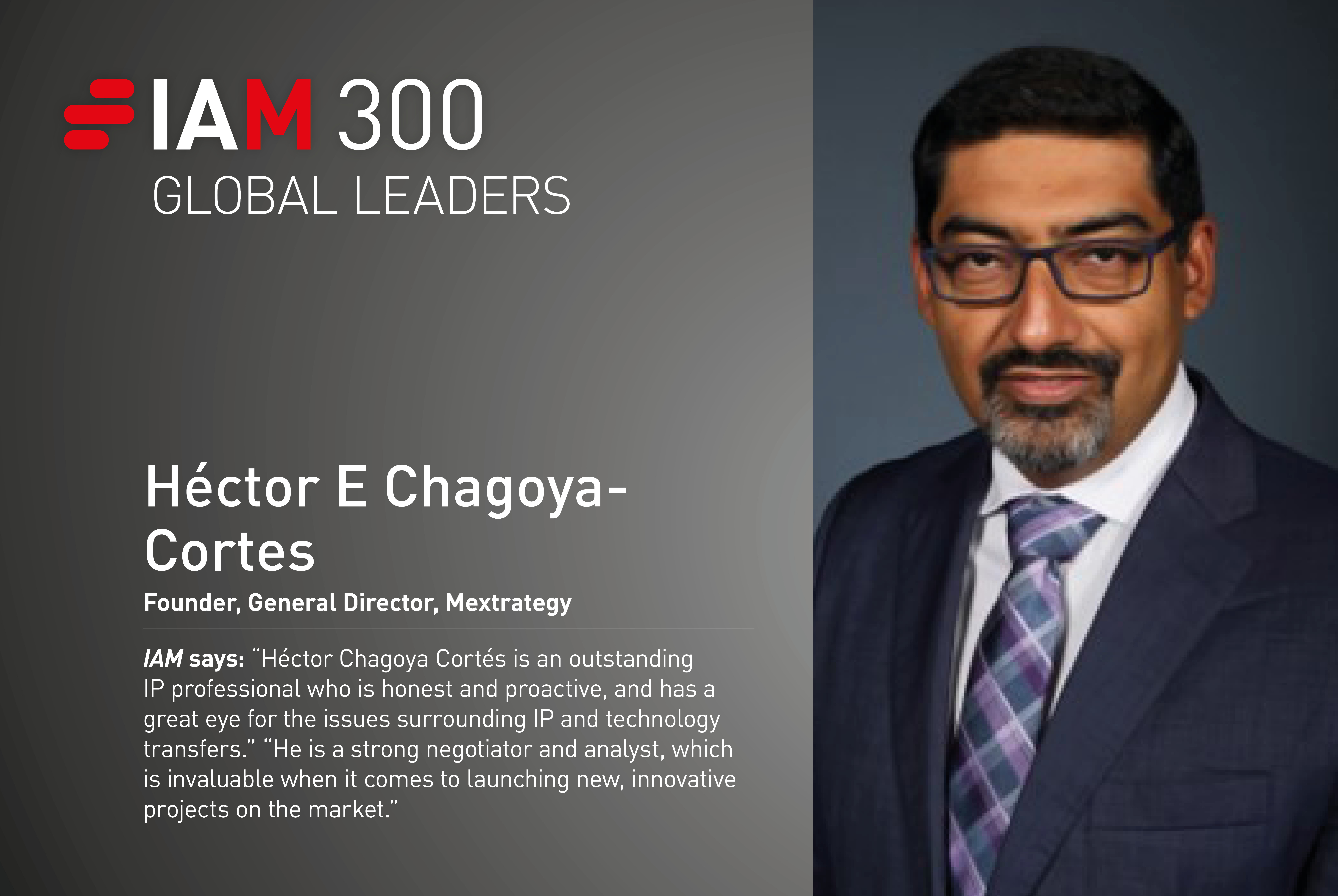Hector Chagoya
As founder of your own firm, as well as past president of both the Mexican Institute of Chemical Engineers and LES Mexico, what does inspiring leadership look like to you?
The key component for inspiring a team is having a common goal or objective, something for which the team exists and is clearly identifiable and inspiring in itself.
A true leader keeps their team motivated towards such a goal by committing to it personally and being accountable as part of the team for the results achieved. Only then will the leader be able to make each person understand the importance of their work and communicate clearly what is expected from them and why. Ultimately, this will allow the leader to convince everyone to be equally accountable. Therefore, the leader is as inspiring as the goals or objectives to be reached by those whom the leader is influencing.
What recent decisions or legislative developments are having the biggest impact on your clients’ IP strategy in Mexico right now?
The current Federal Law for the Protection of Industrial Property (FLPIP) was enacted on 5 November 2020 and is still the main driver affecting IP strategies in Mexico today as it relates to all IP rights. Criteria is still evolving as the Mexican Institute of Industrial Property interprets the new provisions and IP users get used to, take advantage of or challenge the criteria. As the regulations of the law are still pending, the IP system is still adapting around the new provisions of the FLPIP.
If you could change one thing about the licensing landscape in Mexico, what would it be, and do you think it is likely to happen?
All stakeholders’ extreme fear of failure. Unlike other jurisdictions, because of the scarcity of resources devoted to innovation in Mexico, all stakeholders (ie, policy makers, university leadership and R&D centres and companies) prefer to license in technologies developed elsewhere, which wastes Mexico’s high-level scientific and technological potential in emerging areas, such as biotechnology, aerospace, food, pharmaceuticals, IoT and AI.
What key elements make a top-quality monetisation strategy?
A successful IP monetisation strategy is not aligned to the general strategy of the organisation, but it is an integral part of it. Factors such as size, level of internal IP skills, mission, market dynamics and tax environment are key drivers of a good monetisation strategy. When a monetisation strategy is a vital part of the organisation’s general strategy, key IP assets are more easily linked to revenue streams and new intellectual property may be obtained to support growth and serve as a tool for improving the company’s other innovation, financial, taxation and accounting strategies. However, this requires an understanding by the leaders of all areas of the business about IP rights and their effects; otherwise intellectual property will be either underestimated or overlooked, and both things are bad for any organisation.
You are known for your wealth of experience in the tech space. As more and more industries are affected by technological convergence, what considerations should patent owners bear in mind when assessing their existing IP strategies?
Technologies that are used to deliver products and services have many attributes, but ubiquity is one of the most complex of these to manage. This is because sellers, buyers, manufacturers, service centres and technology developers are literally spread all over the world for any given product sold in a specific place.
Patents are perhaps the type of intellectual property that differs most on a country-by-country basis, both in terms of patent subject matter eligibility and enforcement, even though the novelty, inventive step and industrial applicability requirements are practically universal. Further, independent examination, in spite of recent trends towards cooperation between the patent offices of different jurisdictions, still leads to differences in the scope of the patents granted for the same invention in different countries. Accordingly, patent strategies need to consider covering broader territories and reinforcement by copyright protection – a right with a scope less dependent on geography – and also trade secrets, which are not at all standard but are certainly available in most key jurisdictions and can be narrowed down for enforcement through contract management.
Hector Chagoya
Founder, General Director
[email protected]
Héctor Chagoya-Cortes is a chemical engineer and attorney at law. Since its creation, Mextrategy has been involved in covid-19-related technology transfer and innovation projects, start-up consulting, medical devices and IoT/blockchain/Big Data projects. Prior to founding Mextrategy, Mr Chagoya-Cortes led a patent team that filed more than 10,000 patents for companies, in all fields of technology, ranging from Mexican inventors to multinationals.
